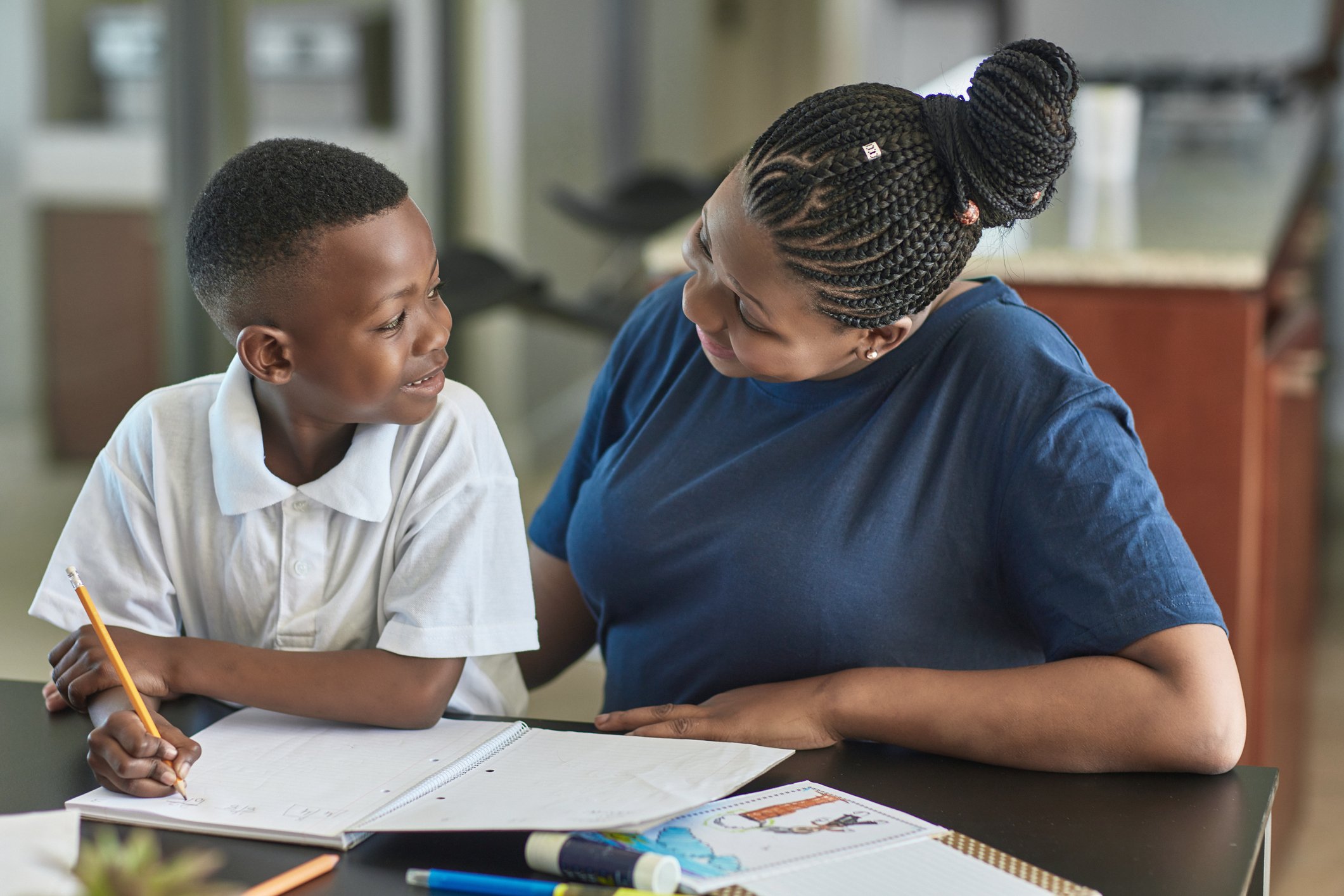Engage your child in oral activities and games
- Recite rhymes and rhythms.
- Sing nursery rhymes.
- Name pictures of objects and group those that rhyme together.
- Clap out the number of words in a sentence and clap out the number of sounds in a word. You can also tap blocks or a table as you say each word or sound.
- Play a game where each player says a word that starts with a particular sound (e.g., “the ’b’ sound” – bottle, baby, etc.).
- Play word games (e.g., “I spy something that starts with the 'b’ sound”).
- Draw a picture of a train (engine, passenger car, caboose). Put the letters representing each sound into the train cars. Say the sounds while pointing to the letters, then blend the sounds together.
- Play teacher and print letters on a sheet of paper, or black or white board. Have your child point to the correct letter or letters every time you say a word beginning with the sound(s). Reverse roles and include the whole family.
Reading in everyday life
Read with your child
- Read stories to your child every day.
- Encourage your child to choose what you read together.
- Sound out letters in print.
- Read traffic, store and restaurant signs, food labels, flyers, and instructions with your child.
- When reading familiar books, leave out a word occasionally and see if your child can supply the right word.
- Use “paired reading” to practice decoding. Read one sentence and have your child read the next sentence, or read one paragraph and have your child read the next one.
- Read age-appropriate books with your child to develop vocabulary and sentence formation.
Ask your child questions
- Ask your child questions about a story they are reading or that you are reading together. For example, "Why is this happening?", "What might happen next?", “Who is your favourite character and why ?”, etc.
- Determine if you child is understanding specific words or phrases on their own. Are they relying on pictures to convey the story?
Develop a personal Word Bank
- Make cards with words that your child has started to learn. Have your child practice sounding out and reading the words. Shuffle the cards daily and take turns reading them.
- Introduce one or two new sight words to the Word Bank each week. Have your child trace the letters and make up sentences using those words.
- Make up simple pattern books using sight words and pictures: “I like _______.”, or “______ is fun.”
General Tips
- Praise your child for engaging in reading activities.
- Encourage your child to ask for help when they need it.
- Include reading activities in daily life.
What if I have questions about my child’s reading development?
Early language skills provide the foundation for later reading development. Practising reading in a variety of contexts, both at school and at home, can support your child’s learning. Without mastering early skills, becoming proficient in reading (fluency, comprehension) can be difficult for your child. If you think your child may be falling behind in reading, please speak to their teacher.

